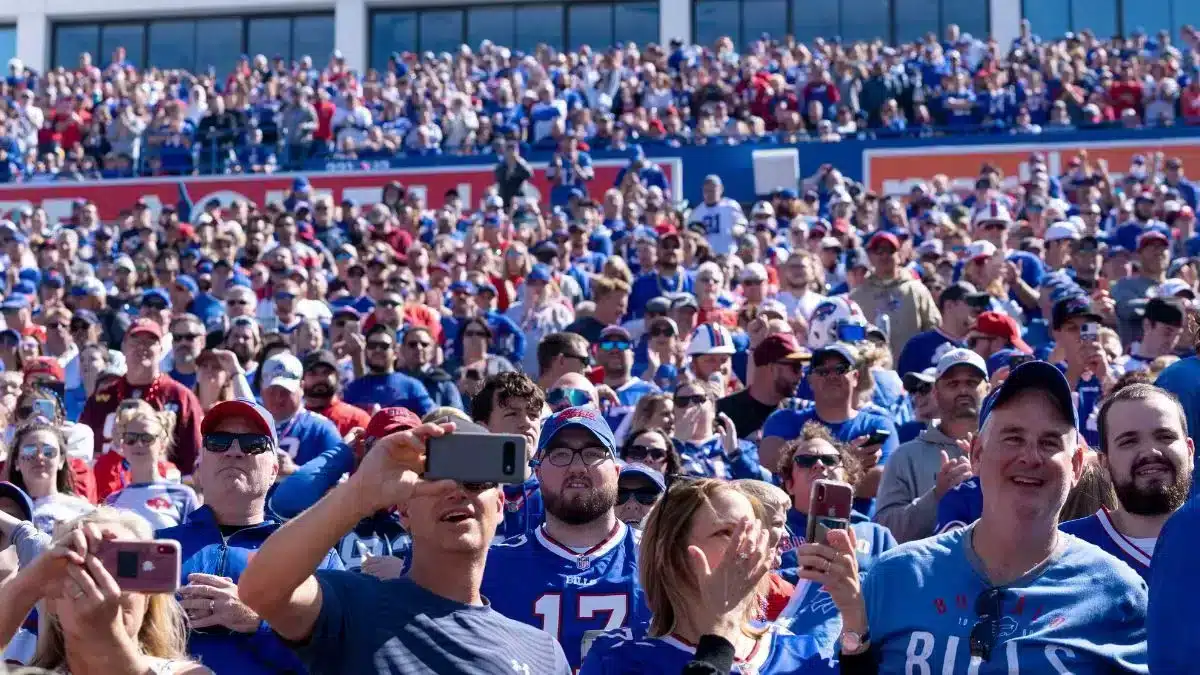
Washington Football Team at Buffalo Bills from Highmark Stadium, Buffalo, NY September 26th, 2021 | Photo by All-Pro Reels Photography via Wikimedia Commons
Buffalo Bills Dodge Sales Tax on PSL Sales
As the Buffalo Bills gear up for the construction of their new $1.7 billion stadium in Orchard Park, a unique financial maneuver has emerged – potentially saving the team millions in taxes. This comes as the Bills secure $850 million in public funds towards the project, with additional subsidies now surfacing through a tax exemption on Personal Seat License (PSL) sales.
While ticket sales typically attract sales tax, the Bills have carved out an arrangement with the state, allowing them to bypass taxes on the PSLs sold to season ticket holders. This could save the team an estimated $25 million or more, representing another layer of taxpayer support for the stadium’s construction.
| RELATED: Bills Fans Say Team Is Pricing-Out Fans With PSL Price Hikes |
The mechanics of this tax break revolve around the technicality of the state acting as the seller of the licenses, thereby exempting the transactions from sales tax. However, it’s the Bills that dictate the pricing and oversee the entire sales process, effectively benefiting from the tax exemption while steering the financial proceedings.
According to a spokesperson for the state, “Purchasers of PSLs are not charged sales tax, and all revenue from the sale of PSLs goes directly into the project construction account; not to the Bills, as per the terms of the construction agreement.”
The implications of this tax exemption extend beyond financial gains for the Bills. It raises questions about the allocation of public funds and the extent to which taxpayers are subsidizing the construction of sports facilities. Critics argue that such subsidies, whether direct or through tax exemptions, prioritize the interests of team owners over the broader community.
Construction is slated to conclude in 2026.






